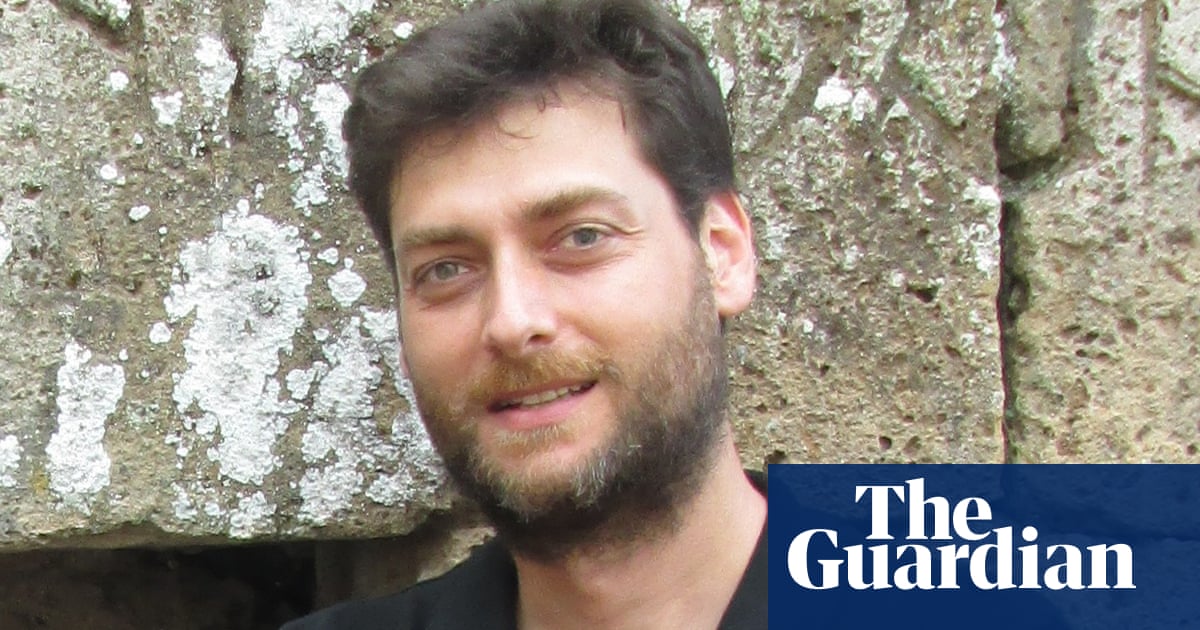
Since 2017, when the Manhattan district attorney’s office announced the formation of its first antiquities trafficking unit, it has recovered nearly 4,500 artefacts stolen from 29 countries, with a combined value of more than $375m (£307m).
It is an impressive track record, made possible by specialists such as the Cambridge-based Greek archaeologist Christos Tsirogiannis, a leading expert in looted antiquities and trafficking networks.
In the past five years, Tsirogiannis has helped the unit recover and repatriate ancient treasures to their respective countries of origin, providing crucial evidence obtained through his own extensive research.
But in an extraordinary breach, Tsirogiannis has accused the unit of abusing his intellectual property by ignoring or downplaying his requests to be credited in official announcements.
“They are taking my work and presenting it as theirs,” Tsirogiannis said. “They are showing off with my academic work and not giving me the credit. It is an abuse of my intellectual property. But now, enough is enough.”
Tsirogiannis said he was interested only in an acknowledgement of his research, and never requested payment. He said he had lost patience after discovering that his original research was used in the district attorney’s latest case, without any credit, even though he had made it clear to the antiquities unit that the research came from his 2012 PhD thesis. That remains in Cambridge University’s library under restricted access until 2025 because it contains evidence that could help smugglers and prevent the recovery of looted artefacts.
After a request from the DA’s office for help, Tsirogiannis said he provided evidence and analysis of a case involving statuettes of the Greek mythological figures Castor and Pollux. He was able to share significant evidence – photographs and documents – that these fourth-century marble sculptures had been looted from Lebanon, as he discovered in conducting research for his thesis.
Tsirogiannis said he emphasised in his emailed communications with the unit that he was providing restricted information from his thesis and that he was sending it on the understanding that he would be credited. He said the unit replied to thank him and request further details, which he also provided.
He said he was astonished to find that he had not been credited when the Manhattan DA’s office announced the return of the statues to Lebanon earlier this month.
“This is a very big case, and the research linking it to particular smugglers is from my PhD,” he said. “I had sent them the whole evidence, word by word, my analysis of the case in order for them to have everything. For five years I’ve been helping them, giving them evidence for free on dozens and dozens of cases. At least give me the credit that I deserve
“It is utterly shameful. I am speaking out to protect my colleagues, alerting them that their intellectual property will be abused.”
Tsirogiannis said he was particularly frustrated because the attitude contrasted so dramatically with the approach of the late Paolo Giorgio Ferri, the Italian public prosecutor who pursued and prosecuted traffickers in looted antiquities. Ferri so valued Tsirogiannis’s help that he made available to him tens of thousands of images and other archival material seized in police raids from dozens of traffickers and other individuals involved in the illicit trade.
Those individuals include Giacomo Medici, convicted in Italy in 2004 of dealing in stolen artefacts; Gianfranco Becchina, convicted in Italy in 2011 of dealing illegally in antiquities and twice in Greece in recent years; and the disgraced British antiquities dealer Robin Symes who, in 2005, served a jail sentence for disregarding court orders over the sale of a £3m Egyptian statue, with the judge dismissing his explanation as “a calculated deception”.
Tsirogiannis’s research into the Castor and Pollux statuettes had proved a link to Becchina and Symes, among others.
In April, he noticed that the district attorney’s office had announced a repatriation to Yemen of three objects including an alabaster female statuette, which was among dozens of antiquities seized from the Manhattan apartment of the collector Shelby White.
Tsirogiannis had linked the statuette to Symes in extensive research that he shared with the district attorney’s office, and yet he was excluded from the credits in the official announcement while the office thanked “Shelby White for her assistance”.
“One would expect a minimum courtesy, especially from people who are claiming to help to do justice,” he said.
Although based in Cambridge, where he is an invited archaeology lecturer at the university, Tsirogiannis is the head of illicit antiquities trafficking research for the Unesco chair on threats to cultural heritage at the Ionian University in Corfu, Greece.
Over the past 17 years, he has identified more than 1,600 looted antiquities within auction houses, galleries, museums and private collections, notifying Interpol and other police forces.
The Guardian contacted the district attorney’s office for comment.












